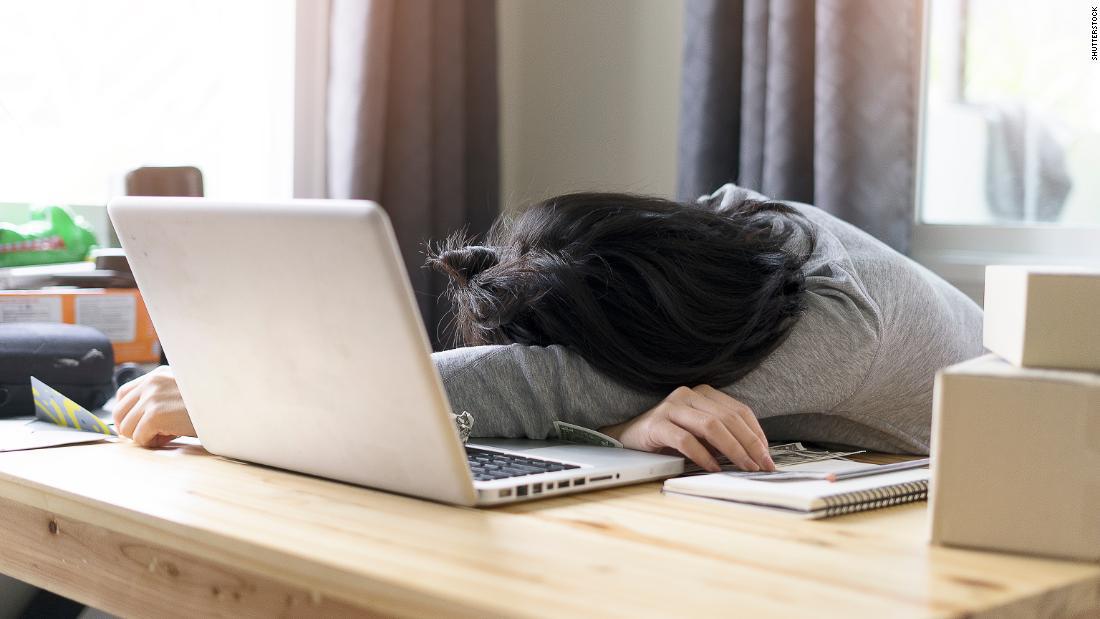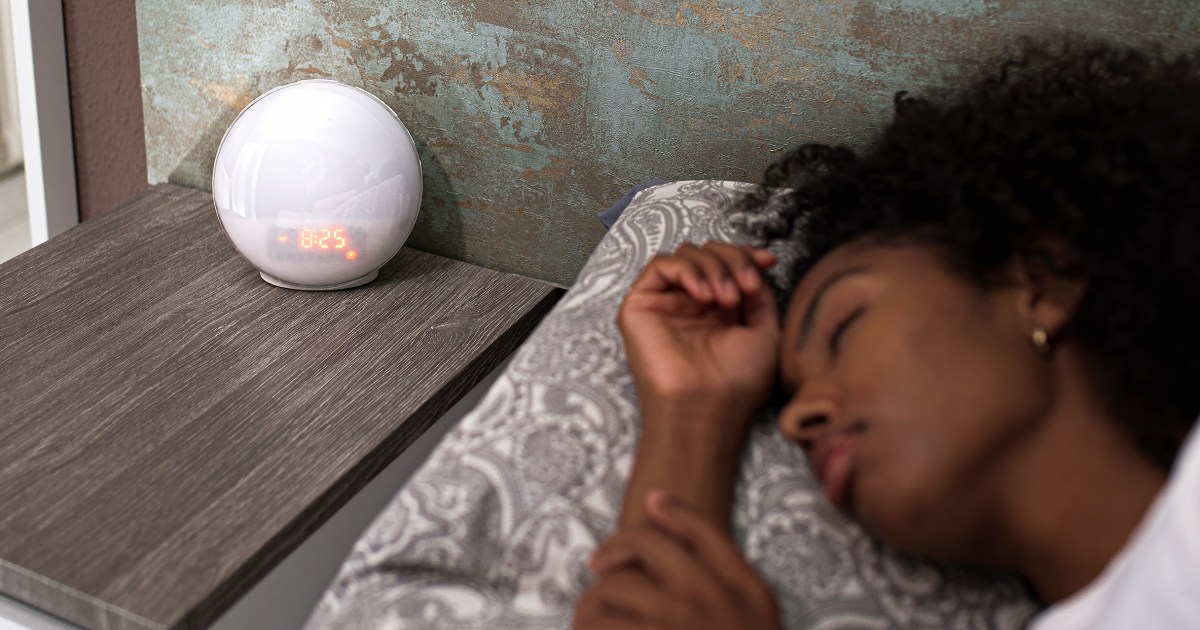The hours of sleep you need according to your age 1:23
(CNN) -
Do you like to stay up late and then regain sleep over the weekend or a day off?
If so, you could be making a social mistake ... when it comes to your dream.
Sleep scientists call it
social
jet lag
, and it is the delay in the natural sleep clock that occurs when you stay up late on Friday and Saturday nights to socialize and then sleep a little longer to catch up.
"Just as traveling from New York to Los Angeles can wreak havoc on the circadian rhythm (the body's natural clock), it can also happen that we stay up late at the end of a stressful work week and sleep late on weekends. week, "says Dr. Raj Dasgupta, a sleep specialist and adjunct professor of clinical medicine at the University of Southern California Keck School of Medicine.
"By staying up late on Friday and Saturday nights and sleeping in for the next two days, you're basically forcing your body into a different time zone," Dasgupta said.
"This sleep pattern puts you at risk for the effects of chronic sleep deprivation, which can increase your risk for medical conditions such as diabetes and heart disease."
You can also alter your sleep rhythm and increase your sleep debt by staying up later in the work week.
Some of us can't help it.
If you instinctively prefer to go to bed later and wake up later, you may be a "night owl."
Are you an owl or a lark?
One of these options could protect you from depression, according to a study
Night owls may be genetically predisposed to staying up late because of a gene called CRY1, experts say.
A recent study found a variation in CRY1 in people with delayed sleep phase disorder, or DSPD, a disorder in which people stay up very late and get up much later.
advertising
That might have been a problem in a pre-industrial society with low light at dusk, but today's world is full of light, sound, and tons of nightlife, so what's the problem?
Unfortunately, most work and school schedules are made for those who like to "go to bed early, get up early."
"Keeping an owl schedule in our modern world, with relatively early work (or school) schedule demands, is less healthy," says sleep specialist Kenneth Wright, professor of comprehensive psychology at the University of Colorado Boulder.
The danger of
social
jet lag
Changing the internal body clock or circadian rhythm in an hour or two confuses the body and the brain.
When you stop knowing what time to sleep and what time to get up, the body responds with symptoms such as insomnia, early awakening or excessive sleepiness, daytime fatigue, difficulty concentrating, constipation or diarrhea, and a general feeling of not being well.
A study published in May looked at the sleeping habits of 85,000 people in the UK and found that people with a maladjusted sleep cycle were more likely to report depression, anxiety, and less sense of well-being.
"Challenging our internal body clock appears to be highly associated with levels of depression, and having greater misalignment was associated with greater odds of depression," study author Dr. Jessica Tyrrell, a senior lecturer at the study, told CNN in a previous interview. Exeter University School of Medicine, UK.
Five ways to adjust your sleep schedule before heading back to the office
On the other hand, people who like to get up early, often called "morning larks," were less likely to have irregular sleep schedules.
And here's the best: the study found they were happier than night owls.
"If you're a morning person, you're less likely to have depression and more likely to report better well-being. This may be partly because morning people are less likely to suffer from
social
jet lag
," Tyrrell explained.
How to cure social jet lag
The cure?
It is very similar to that of the patient who told the doctor: "It hurts to raise my arm."
The doctor replied that it was very simple: "Stop raising your arm."
"Instead of waking up and sleeping at times that are not in sync with your internal clock and switching between two different sleep schedules (one for weekdays and one for weekends), try to maintain a healthy sleep schedule and consistent, "says Dasgupta.
Go to bed at the same general time each night and wake up at the same general time each morning, even on weekends.
Of course, this is easier said than done for people who were born to be night owls.
But it's possible, according to a 2019 randomized clinical trial that taught a group of nocturnal owls to redo their sleeping habits.
Over a six-week period, 22 confirmed night owls were told to try the following:
Going to sleep two to three hours before your usual bedtime and waking up two to three hours before your typical waking time
Maintain the same hours of sleep and wakefulness (with a margin of 15 to 30 minutes) on work days and on days off
That they expose themselves to the maximum outside light during the mornings and that they limit the exposure to light at night.
If they exercise, let it be in the morning
Eat breakfast as soon as possible after getting up, and have lunch and dinner at the same time every day, but no later than 7 p.m.
Don't consume caffeine after 3 PM, and don't take a nap after 4 PM.
At the end of the six weeks, the researchers found that the people who followed the recommendations the most were able to delay their biological clocks by up to two hours, meaning they went to bed and woke up two hours earlier.
In addition, people reported being less depressed and stressed.
Tests of his cognitive reaction time and physical grip strength showed that his performance in both areas peaked earlier in the day.
This is what living with the short sleep gene is like: it doesn't matter if you sleep little, you have a lot of energy
Other techniques
Of course, not everyone is a "night owl".
Some of us are overwhelmed by the demands of work and school or simply practice poor sleep habits and suffer the consequences.
Focusing on good sleep hygiene will help train the brain to get the body clock back in sync.
Sleep hygiene: 8 ways to train your brain to sleep better
Start with your room.
Make sure the bed and pillows are comfortable, and that the room is cool - 15-18 ° C is best.
Don't watch TV or work in your bedroom;
you want your brain to think that the room is only for sleeping.
Make sure to eliminate all bright lights, as even blue light from cell phones or laptops can be disruptive.
If this is difficult to achieve, consider using blackout blinds and curtains to keep the room dark.
Also try to eliminate annoying sounds.
Earplugs or white noise machines can be very helpful, but you can create your own using a humidifier or fan.
During the day, try to expose yourself to natural light, as this will help you regulate your circadian rhythm.
Next, establish a bedtime routine that you can follow each night.
Taking a hot bath or shower, reading a book, listening to relaxing music, meditating, or light stretching are good options.
When to stop drinking coffee so you can get a good night's sleep
Other suggestions for getting a good night's sleep are avoiding stimulants, such as nicotine or coffee, after mid-afternoon, especially if you have insomnia.
Alcohol is another of the prohibited elements.
You may think it helps you sleep, but you are more likely to wake up at night when your body begins to process the liquors.
Also avoid high-fat foods just before sleeping.
If you have a digestive problem, eating fried or fatty foods, spicy foods, some citrus fruits, and even carbonated drinks can trigger heartburn and indigestion.
Exercise is key to promoting good sleep.
According to the National Sleep Foundation, just 10 minutes a day of walking, biking, or other aerobic exercise can "dramatically improve the quality of your night's sleep."
And of course, go to bed and wake up at the same general time every day, including weekends, days off, and holidays.
Follow all these steps and you will be on your way to solving your
social
jet lag
and improving your health.
Sleep quality











